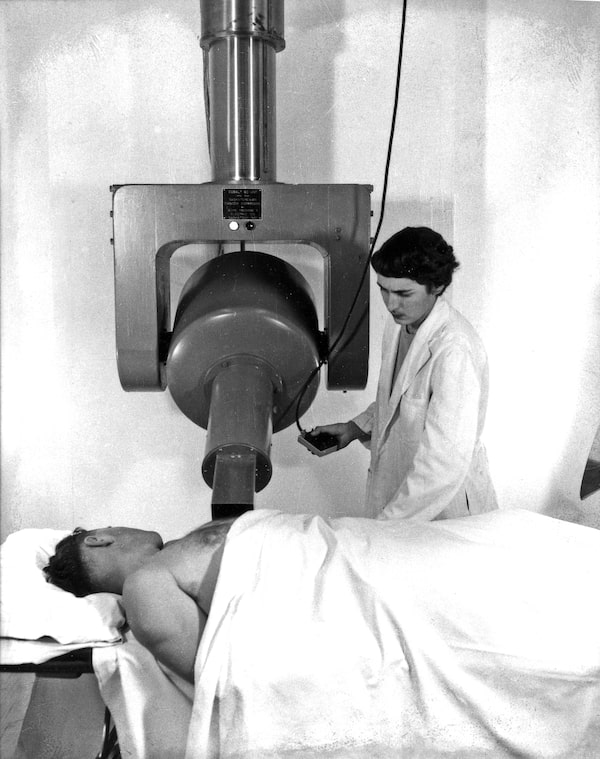Good morning,
CSIS warned the federal government that implementing the Emergencies Act would likely increase the number of Canadians who hold extreme anti-government views and radicalize some toward violence, according to a document tabled yesterday with the inquiry examining the act’s use.
On Feb. 13, the day before the act was invoked, the spy agency advised the government that the invocation of the act would probably lead to the dispersal of protesters in Ottawa. But it would likely also “push some towards the belief that violence is the only solution to what they perceive as a broken system and government.”
- Doug Ford wins court fight, won’t have to testify at Emergencies Act inquiry
- Campbell Clark: Doug Ford uses a big principle for small politics
- Opinion: Peter Sloly has been made into a convenient scapegoat for the Ottawa occupation
- New Tory communications director supportive of trucker protest

Protesters participating in a cross-country truck convoy protesting measures taken by authorities to curb the spread of COVID-19 and vaccine mandates walk near Parliament Hill in Ottawa on Jan. 29, 2022.Adrian Wyld/The Canadian Press
This is the daily Morning Update newsletter. If you’re reading this on the web, or it was forwarded to you from someone else, you can sign up for Morning Update and more than 20 other Globe newsletters on our newsletter signup page.
CUPE to end walkout after Ford pledges to repeal law banning strike
Ontario Premier Doug Ford says he will repeal legislation that used the notwithstanding clause to impose a contract on 55,000 education support workers and overrule their right to strike, after their union staged a defiant walkout that shut down schools throughout much of the province.
Public- and private-sector union leaders celebrated in a downtown Toronto hotel yesterday after receiving written notice from the government that it would rescind the legislation, known as Bill 28, as long as the workers, who belong to a division of the Canadian Union of Public Employees (CUPE), return to work.
The union has said its members will do so, allowing schools across Ontario to reopen today while the two sides resume contract negotiations.
- Doug Ford’s use of the notwithstanding clause had the unintended effect of bringing Canada’s largest unions together
- Editorial: Doug Ford wanted to go to war with the unions. Instead, he shot himself in the foot
- John Ibbitson: Doug Ford brings the hammer down too soon on public-sector wages
- Opinion: Don’t blame Doug Ford for using the notwithstanding clause – it was the only logical solution
Spending on U.S. midterm elections is breaking records
On a single day last week, Ann Ravel sorted through the 15 pieces of election-related mail that arrived at her California home. Some 10 times that number pounded into her digital inbox. Urgent messages came from campaigns in Wisconsin, Colorado, Nevada, Georgia, Pennsylvania, Ohio, Michigan and different parts of California.
OpenSecrets, a non-profit that tracks election spending, estimates US$16.7-billion will be spent on these elections, the most ever for a midterm vote, which will determine who controls Congress and occupies governor’s mansions in dozens of states.
U.S. courts have refused to limit election spending, with the Supreme Court deciding in the 2010 Citizens United case that to constrain corporate and other contributions would amount to a curb on free speech. But the amount being spent on the midterms has added to concerns about the corrupting influence of money.
- Outlandish conspiracism at front and centre of U.S. midterm elections
- In Arizona, ballot drop box vigilante surveillance is shut down, but their wary worldview remains steadfast
- Georgia’s high-stakes race has controversial Republican Herschel Walker in a dead heat with incumbent Democrat Raphael Warnock
- David Shribman: Five ways the midterms will shed light on the state of America’s political transformations
We’ve launched a new weekly newsletter Great Reads – a curated collection of provocative, inspiring or delightful stories sent on Saturday mornings. Sign up here.
Got a news tip that you’d like us to look into? E-mail us at tips@globeandmail.com Need to share documents securely? Reach out via SecureDrop
Also on our radar
Suzette Mayr wins Giller Prize: Calgarian Suzette Mayr has won the 2022 Scotiabank Giller Prize for The Sleeping Car Porter, her sixth novel. The win is worth $100,000 to the 55-year-old author, who was presented a hand-blown glass trophy at a glitzy televised ceremony in Toronto.
Ukrainian soldiers who have lost limbs learn how to restart their lives: At the Halychyna rehabilitation centre outside Lviv, the largest facility in Ukraine dedicated to treating soldiers who have lost their limbs in battle, the caseload has tripled to 160 since the war began but the waiting list is ever growing and the demand for help – physical and mental – is constant.
Competition Bureau squares off against Rogers, Shaw: The Competition Bureau squared off against two of Canada’s largest cable companies at the Competition Tribunal yesterday over whether the proposed divestiture of Shaw Communications’ Freedom Mobile would address any anti-competitive effects stemming from Shaw’s $26-billion merger with Rogers Communications.
Manitoba bars hospital transfers for Nunavut children: Critically ill children and babies from central Nunavut are being flown as far away as London, Ont., after Manitoba enacted a policy that effectively bars them from the packed pediatric intensive-care unit in Winnipeg where they are usually treated.
More Canadians living with cancer: More people in Canada are living with cancer than ever before, suggesting the country’s already strained health care system will need to accommodate larger numbers of patients with long-term illnesses.
Canadians say China has negative influence on world affairs: More than 84 per cent of Canadians feel China has a negative influence on world affairs and only 8 per cent believe Ottawa should make closer ties with the country a priority, a new Nanos Research poll shows.
Morning markets
European markets mixed: European stocks struggled to make gains on Tuesday and the U.S. dollar picked up as traders pulled back on hopes that China could ease its zero-COVID policy and showed signs of caution ahead of U.S. mid-term elections. Just before 6 a.m. ET, Britain’s FTSE 100 was down 0.23 per cent. Germany’s DAX rose 0.24 per cent while France’s CAC 40 lost 0.19 per cent. In Asia, Japan’s Nikkei finished up 1.25 per cent. Hong Kong’s Hang Seng slid 0.23 per cent. New York futures were modestly higher. The Canadian dollar was little changed at 74.08 US cents.
What everyone’s talking about
André Picard: “Where will all the sick kids go? That is a question that should send chills down the spine of every parent. Since COVID-19 started wreaking havoc in early 2020, we have made the mistake, time and time again, of taking children for granted.”
Cathal Kelly: “It’s been two years since Miller’s story hit the headlines. Apparently, the Bruins organization is a believer in the healing power of the 24-hour news cycle. Evidently, it was wrong.”
Today’s editorial cartoon

Brian GableBrian Gable/The Globe and Mail
Living better
At risk for diabetes? A low-carb diet may help, study suggests
There’s good evidence a low-carbohydrate diet helps people with diabetes improve blood sugar control, reduce the need for diabetes medication and lose excess weight. Adding to the evidence base is a new study from Tulane University in Louisiana. Its findings: a low-carbohydrate diet, if maintained, may be a useful tool for preventing Type 2 diabetes.
Moment in time: Nov. 8, 1951

In 1951, a group of medical physicists at the University of Saskatchewan, headed by Dr. Harold Johns, worked to harness the powerful radiation emitted by the new isotope, Cobalt-60, for therapeutic purposes.University of Saskatchewan Archives and Special Collections
Cobalt bomb cancer therapy unit used for first time in Saskatoon
It was a revolutionary cancer treatment with an unlikely name: the cobalt bomb. In 1951, a group of medical physicists at the University of Saskatchewan, headed by Dr. Harold Johns, worked to harness the powerful radiation emitted by the new isotope, Cobalt-60, for therapeutic purposes. The team had to design a machine to safely hold the cobalt discs (like stacked quarters) as well as ensure that the treatment room did not leak radiation. They also had to find a way to administer the correct dosage; otherwise, given the strength of Cobalt-60, the patient could easily be exposed to too much radiation. The rigorous depth dose measurements were performed by physics master’s student Sylvia Fedoruk, shown above, a future University of Saskatchewan chancellor and Saskatchewan lieutenant-governor. The half-ton cobalt bomb unit was installed in Room 167 in the new cancer wing of Saskatoon’s University Hospital. While the machine was calibrated and tested, the team searched for a patient whose cancer was amenable to treatment. A mother with cervical cancer received her first treatment – a precise dose to an exact area – on this day in 1951. The woman died 47 years later at age 90. Bill Waiser
Read today's horoscopes. Enjoy today's puzzles.
If you’d like to receive this newsletter by e-mail every weekday morning, go here to sign up. If you have any feedback, send us a note.